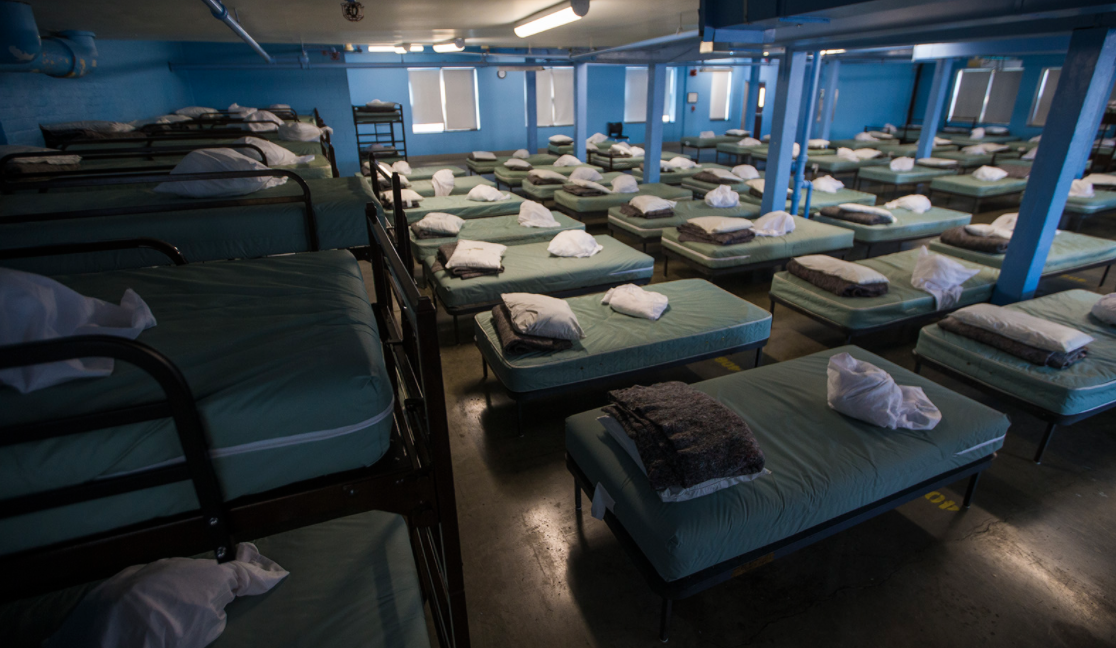Shocking Report Shows Half The Homeless At Boston Shelter Tested Positive For COVID-19: And None Had Symptoms
By Tyler Durden
Shocking Report Shows Half The Homeless At Boston Shelter Tested Positive For COVID-19: And None Had Symptoms
Researchers and clinicians who have 'experimented' with random mass testing for COVID-19 have made some pretty amazing - and amazingly depressing - discoveries. Yesterday, we shared a report about one sweeping antibody testing regime set up by researchers in Santa Clara County in California.
The study found that the estimated level of novel coronavirus penetration in the county was "50-80% higher" than what had been recorded.
If that isn't enough to terrify every day trader who ratcheted up their exposure heading into the weekend, a news story about another surprising discovery - this time on the East Coast - has just come to our attention.
After a cluster of cases involving residents of a South Boston homeless shelter, Massachusetts public health officials tested every resident of the Pine Street shelter in Boston's South End.
The results have garnered the attention of the CDC, which is "actively investigating the situation," according to Boston 25 News.
The CDC is now "actively looking into" into universal COVID-19 testing at Pine Street Inn homeless shelter.
The broad-scale testing took place at the shelter in Boston’s South End a week and a half ago because of a small cluster of cases there.
Of the 397 people tested, 146 people tested positive. Not a single one had any symptoms.
"It was like a double knockout punch. The number of positives was shocking, but the fact that 100 percent of the positives had no symptoms was equally shocking," said Dr. Jim O’Connell, president of Boston Health Care for the Homeless Program, which provides medical care at the city’s shelters.
O'Connell said that the findings have changed the future of COVID-19 screenings at Boston’s homeless shelters.
The big takeaway, if you couldn't tell, is that a pattern is developing here: When mass testing is conducting, a shocking number of new cases are being identified, and - what's even more surprising - often none of them even show any symptoms/.
As we've noted several times already today, the theme of under-counting cases and deaths in institutions like nursing homes, prisons, homeless shelters and other settings has been especially prominent lately, as officials try to compensate for missed or undercounted cases and, in some countries, the veracity of the 'official' numbers is becoming a hot potato political issue.
The discovery of so many asymptomatic cases, many of which involve individuals who are indigent and presumably at high risk, has, according to the report, changed the way public health officials in Massachusetts are testing.
O’Connell said that the findings have changed the future of COVID-19 screenings at Boston’s homeless shelters.
"All the screening we were doing before this was based on whether you had a fever above 100.4 and whether you had symptoms," said O’Connell. “How much of the COVID virus is being passed by people who don’t even know they have it?"
The 146 people who tested positive were immediately moved to two different temporary isolation facilities in Boston. According to O’Connell, only one of those patients needed hospital care, and many continue to show no symptoms.
But that's not all: It's also forces officials to confront the uncomfortable elephant in the room: what would "the curve" look like if we had the capacity for general testing?
"If we did universal testing among the general population, would these numbers be similar?" said Lyndia Downie, president and executive director at the Pine Street Inn. “I think there are no many asymptomatic people right now. We just don’t know. We don’t have enough data on universal testing to understand how many asymptomatic people are contagious."
Hundreds of tests are now set to be conducted at additional Boston homeless shelters in the coming days.
"It tells you, you don’t know who’s at risk. You don’t know what you need to do to contain the virus if you don’t actually have the details or facts,” said Marty Martinez, Boston’s chief of Health and Human Services.
What would be the takeaway here? Is the mortality rate in the US, which has lingered at a surprisingly high 5% according to the official numbers, in reality significantly lower? Or is there perhaps even more that we're missing here?
April 19, 2020 at 06:30AM
via ZeroHedge News https://ift.tt/2RLwxvh

Comments
Post a Comment